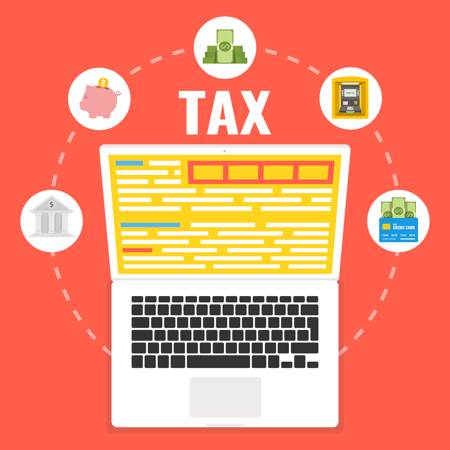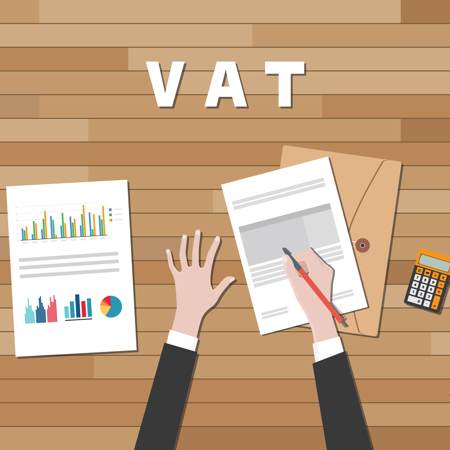Last minute GDPR preparation for small businesses
 GDPR is a hot topic these days and rightly so. 25 May 2018 is the day the new EU General Data Protection Regulation swings into full gear, and with it come hefty fines to those who are found non-compliant.
GDPR is a hot topic these days and rightly so. 25 May 2018 is the day the new EU General Data Protection Regulation swings into full gear, and with it come hefty fines to those who are found non-compliant.
We’re excited to be GDRP compliant ourselves, and as your small business accountants, we encourage you to take preparations seriously too. With just over two weeks to go, here’s your last-minute checklist to help your small business come to grips with the main points of GDPR compliance.
Your last-minute GDPR checklist
- I’ve conducted an information audit. – You’ll need to do this to identify how you process data within your organisation.
- I’ve mapped and documented my company’s data flows. – You’ve documented the results of your audit, wrote down what personal data you hold, how you got hold of it, who you share it with now and what you plan to do with it in the future. You should also implement an appropriate data protection policy that can demonstrate accountability under GDPR.
- I’ve identified my company’s lawful basis for processing data. – There are six: You can hold information if an individual has given clear consent, if the processing is necessary for a contract, necessary for a legal obligation, or to protect someone’s life. A basis can also be found if processing private information is necessary for you to perform a task in the public interest or legitimate interests. Make sure you clearly document your justification for relying on a lawful basis.
- I’ve reviewed how my company is asking for consent. – You’re asking for it in a transparent and prominent manner. Consent cannot be a precondition for your services, and you must keep records of an individual’s consent. Make sure to emphasise that consent can be withdrawn anytime. For processing the data of anyone under the age of 13, you need consent from a parent or guardian.
- I’ve provided privacy information on my website and in forms I send out. – The information must be short and clear, easy to understand and easy to access. If it’s targeting children, you must make sure it’s written in a way that’s understood by them.
- I know what to do when someone asks to see/change/delete/restrict access to their personal data. – They can ask for this verbally or in writing, and either way you’re obliged to comply with their requests free of charge within 30 days.
- I know that the data belongs to the people, not to my business. – If they ask for it and want to reuse it for their own purposes, they can.
- My business knows how to monitor and regularly review my compliance with data protection policies and data security.
- I’ve trained my staff on data protection.
- I’ve taken technical and organisational steps to make sure data is securely protected.
- I’ve nominated a Data Protection Officer (DPO). – Check with ICO if you’re required to have one and appoint a member of staff.
- I have data breach procedures in place, including a notification process. – If there’s been a data breach, you must notify the authorities within 72 hours of becoming aware of it.
TaxAgility, GDPR compliant accountants
Accountants are known to handle highly sensitive company information, and at TaxAgility, we work hard to ensure yours is kept secure. This means that you don’t need to worry about the privacy of your data while we continue to provide top-notch services to small businesses across London. From accounts and bookkeeping to payroll services, tax planning, tax investigations and more, contact us today to find out what London’s Local Accountants TaxAgility can do for your small business in: Putney, Wimbledon, Fulham, Richmond, Hammersmith and throughout London from our Central London office in Cavendish Square.
Buy-to-let: Essential tax advice for new landlords
 The glory days of the buy-to-let market are supposedly over, but according to UK Finance, new investors have taken out over five thousand buy-to-let mortgages in February 2018. If you’re considering doing the same, find out what the main BTL taxes are that you’ll deal with.
The glory days of the buy-to-let market are supposedly over, but according to UK Finance, new investors have taken out over five thousand buy-to-let mortgages in February 2018. If you’re considering doing the same, find out what the main BTL taxes are that you’ll deal with.
Purchasing your property
You can choose to buy a property either as an individual, as a joint owner or via a limited company. The tax implications will be different for each scenario, so you should speak to an accountant specialising in landlords to find out which option is the best for you and decide on a course of action appropriate to your situation.
There is a different Stamp Duty Land Tax (SDLT) system in place if you are buying a property that you do not plan to live in, but will choose to let out instead. There are six band rates, with only properties under £40,000 not attracting any SDLT. Anything over this is taxed between 3 to 15 percent.
Renting your property
You’ll need to register with HMRC and send them annual tax returns when renting out your property, otherwise you may face a fine. Tax rules vary for residential properties, furnished holiday lettings and commercial properties, and your tax bracket will determine how much tax you are required to pay. In every case, you’ll need to have a bookkeeping system in place to track your income and expenses.
You’ll have to pay income tax on rental profits, but there are certain expenses you can deduct from the rental income. There is a vast range of allowable expenditures including general maintenance and repair, letting agent fees, insurance, and direct costs of renting a property, which could include phone calls, stationery and advertising. Visit HMRC’s rental income tax guide for more information.
Mortgage interest tax relief
For those who own property as individuals and have taken out a buy-to-let mortgage, it’s important to know that the government has introduced a cut to mortgage interest tax relief. While before April 2017, mortgage interest payments were deductible from a landlord’s taxable income before they calculated their tax bill, buy-to-let investors will now have to pay tax on their full rental income and then claim back a basic tax deduction.
London’s local accountants saving landlords time, money and headaches
Whether you’re a portfolio landlord or letting your first property, managing your finances as a landlord can get complicated pretty fast. TaxAgility’s has experienced accountants to help keep your finances organised and help with landlord tax returns. We pride ourselves on being specialist accountants for landlords, aiming to help you make sense of the various tax implications that affect you. Our services give you access to a team of experts with specialist resources, providing you with a cost-effective solution to your accounting woes.
Call us today on 020 8108 0090 and find out how we operate local to landlords in London.
We’re Accountants serving clients in Putney, Wimbledon, Fulham, Richmond, Hammersmith and from our Central London office in Cavendish Square.
What’s the hardest thing about starting a new venture?
 A study commissioned by Virgin Money asked 500 entrepreneurs what the hardest thing about setting up a new business is. Taking time off for holidays, working long hours and not having much disposable income came out on top, but struggling to keep accounts up to date and managing finances effectively also made it into the top 30 challenges.
A study commissioned by Virgin Money asked 500 entrepreneurs what the hardest thing about setting up a new business is. Taking time off for holidays, working long hours and not having much disposable income came out on top, but struggling to keep accounts up to date and managing finances effectively also made it into the top 30 challenges.
Challenges of starting a new business
According to Virgin Money’s survey, entrepreneurs starting a business struggle the most with the following:
- Taking time off/holidays
- Working long hours
- Not having as much disposable income
- Striking a work-life balance
- Working weekends
- Getting customers
- Making a name for yourself and the business
- Never being able to switch off
- Spending time with family
- Ensuring accounts are up to date
- Completing admin
- Believing in yourself
- Taking work home
- Spending time with your partner
- Finding time for hobbies/other interests
- Managing finances more effectively
- Socialising with friends
- Having patience
- Staying motivated
- Finding/hiring employees
- Being able to deal with problems
- Being able to foresee problems
- Networking/meeting people
- Legal work
- Understanding jargon such as P&L, Net Profit, Gross profit etc.
- Writing up a five-year plan
- Dating/meeting new people
- Family/partner trusting you when you promise the venture would be a success
- Being more organised
Don’t be baffled by bureaucracy
Running your business is not easy, and at TaxAgility, we can at least help remove your accounting frustrations when you’re setting up a new business. In particular, the overly bureaucratic tax system can be confusing, and then there’s also the burden of general accountancy work such as bookkeeping and VAT returns. Our friendly, professional team can support you and free up your time, enabling you to focus on other important things, like your work-life balance.
Starting a business with TaxAgility
We have a team of small business accountants ready to support and work with you to evaluate your business plan, put the right financial structure in place, meet regulatory requirements and get your business up and running as quickly and as smoothly as possible. We can assess your financial requirements, provide advice on funding, and advise you on the most suitable structure for your business. And once you’re up and running, we’re happy to stay by your side to manage your finances and help your business grow.
For more information about starting a business with TaxAgility, check out our Accountants for Startups page.
What you need to know about changes to Inheritance Tax
 Inheritance Tax (IHT) may not be on your mind, but when you have considerable savings and property to pass on, it’s a good idea to add IHT to your tax planning checklist.
Inheritance Tax (IHT) may not be on your mind, but when you have considerable savings and property to pass on, it’s a good idea to add IHT to your tax planning checklist.
In the past two years, HMRC has generated more revenue from Inheritance Tax than ever before, £5.3bn to be exact. This is thanks to rising house prices and that the tax authority has been closing down various loopholes. It may come as good news though for homeowners that there has been a boost to the residence nil-rate band, and TaxAgility is here to explain what that exactly means.
What’s the nil-rate band?
The Inheritance Tax threshold, also known as the nil-rate band, is frozen at £325,000 per person until 2021. This means no tax needs to be paid on assets (excluding property) passed to your descendants up to this value. Above this threshold, your estate will incur a tax of 40%.
An additional IHT allowance is in place for people who own property, and this is called the residence nil-rate band. Set at £100,000 per person in the past tax year, the threshold has been raised to £125,000 this month and will continue to rise by £25,000 every year until 2020/2021, to take into account rising property values. This means that your descendants will only need to pay tax on the inherited property if it is worth more than £125,000.
Married couples and civil partnerships
Your IHT allowance gets added to your partner’s allowance if you die before them. This means married couples and civil partners can pass on assets worth £650,000 completely tax-free. The same concept of doubling applies to the residence nil-rate band, giving couples a considerable tax break.
Inheritance Tax accountants
You can expect further changes to Inheritance Tax throughout the year as the Office for Tax Simplification has been urged to review the complex rules around Inheritance Tax on gifts. TaxAgility is keeping a close eye on the changes, and we’re happy to discuss what the new Inheritance Tax threshold could mean for you, your property, and those you wish to inherit it.
No one wants to leave a hefty IHT bill as part of their legacy. To speak with a professional accountant to discuss ways you can maximise the value of your estate with Inheritance Tax planning, contact us today on 020 8108 0090 or get in touch with us via our contact page to arrange a complimentary, no obligation meeting.
Business advice for SMEs: Six tips for running a better business

Starting a business can be an exciting, yet sometimes daunting, process. To help you with your new enterprise, TaxAgility’s team of accountants for small businesses and startups are here to work with you to get your business trading as soon as possible.
Once you’re up and running, there are steps you can take to ensure that your new venture has the best possible start in the current economic climate.
Here are six things you can do to run a better business:
1. Make a plan and stick with it
When you first started your business, you formulated an initial business plan that covered every aspect of the development of your new company, from acquiring funding to defining your marketing strategies. Your plan has gotten you this far so don’t disregard it now. Instead, review it regularly and adjust it to accommodate changes and challenges within your operations and the economy. Studies show planning and goal-setting give new business owners a greater chance of long-term success. As the saying goes, “if you fail to plan, you plan to fail”.
2. Build an online presence
Potential clients no longer skim the yellow pages or trek to the local library for information on how to solve their problems. So how do people search for solutions today? They go online and find companies like yours that can help them out. If a new company doesn’t hold an online presence, it might as well not exist. Your business’s online profile doesn’t need all the bells and whistles, but a basic website should provide users with contact details, an “about page,” and what you have to offer. This will generate more business and keep your operation competitive.
Don’t forget about social media either. Use it as a way to connect and engage with your customers. Loyal followers translate to a steadfast customer base, so focus on providing quality content.
Looking for more information on how to build an online presence? Check out our “Is a website still important and what about social media?” article.
3. Hire help
As your business grows, tasks and responsibilities will become more complex and you may not have the skill set to deal with them on your own. To allow your business to progress, you may need to make a few hires. You don’t have to worry about figuring out the best way to pay them and how many new hires you can afford as TaxAgility can help you with all your payroll needs. We have payroll services to help small businesses overcome this common hurdle.
4. Make your invoicing effective
Invoicing may seem like an obvious process, but it’s something many small businesses struggle with. Make sure your small business is invoicing correctly by creating documentation to outline payment terms describing how, when and where your customers need to pay you. Add it to your invoice template so it’s clear to your customers. Even better, use invoicing software to automate the process. Make sure all the invoices are digitally archived and filed for quick accessibility, should the tax authority come for an audit.
5. Take advantage of cloud-computing software
As your business grows, it demands more time from you and you naturally want to know where to focus your strengths. Is it sales and account management? Maybe marketing? Cloud-based accounting software provides ways to create snapshot reports so you no longer need to wade through Excel spreadsheets to come up with your conclusions. One of the most popular cloud-based solutions, Xero, is very intuitive and easy to learn. It has an interface that integrates your current bank accounts, credit card reports, receivables, payables, tax liabilities, VAT and more. Also, as many accounting firms, including us, can use Xero to prepare your year-end tax returns, it means a lower accounting cost for you.
6. Find the right accountant
You can’t do everything on your own and there’s no shame in asking for help every now and again. As a small business owner, there will be many things you will be responsible for, some more daunting than others. Our Accountants at TaxAgility can manage your accounts, books and other finances so you don’t have to. Don’t worry, you’ll still be able to work on it too – cloud accounting software Xero allows more than one person to have access and to make changes to the information.
We have a philosophy at TaxAgility: you win, we win. Our expert accountants are dedicated to making your business a major success and so we will do everything we can to help you.
For more about building a better business, read our how to better your business page so you’re always on the road to success. You can also give us a call on 020 8108 0090 to discuss how we can help your small business grow.
Making a limited company dormant - What to look out for
 Many contractors choose to close their limited companies completely when they have no intention of returning to contracting. But for those who are just considering a short break away from their limited company, making it dormant may be the better option. This will allow you to reserve your company name, brand and trademark until you return to your operations. However, making your limited company dormant does require you to meet certain filing requirements throughout the year.
Many contractors choose to close their limited companies completely when they have no intention of returning to contracting. But for those who are just considering a short break away from their limited company, making it dormant may be the better option. This will allow you to reserve your company name, brand and trademark until you return to your operations. However, making your limited company dormant does require you to meet certain filing requirements throughout the year.
In the following article, we look at what makes a company dormant and what steps you need to take to make your limited company dormant.
What is a dormant company?
When a company is dormant, it means it has stopped trading and is therefore inactive for Corporation Tax purposes. Under the term trading, HMRC means buying and selling, renting property, advertising, employing someone or earning interest. Transactions must be limited solely to the payment of shares and any outstanding fees to the Companies House.
When your company is dormant, you are not required to file tax returns. However, you are still required to maintain certain administration on an ongoing basis. This includes submitting a confirmation statement to the Companies House and submitting forms if there is a change to the company’s registered address or if there is a change in company’s directors.
For detailed guidance on requirements, visit the government’s website.
What actions do I need to take to make my active company dormant?
Once you’ve decided to make your limited company dormant, the process is fairly straightforward. To make an active company dormant, you should:
- Inform HMRC that your company is dormant in writing or by phone. This must be within three months of your company becoming dormant.
- Make sure your clients pay any outstanding invoices before you cease trading.
- Close your business bank accounts. Any transactions will otherwise void your company’s dormant status.
- Terminate your contracts with service providers and settle any outstanding bills.
- A dormant company cannot have employees. Pay any remaining wages if your company had employees and follow HMRC protocols to close your payroll.
- Deregister for VAT.
- Prepare your final trading accounts for your accounting year-end and file your final tax return.
Need assistance?
Talk to us at TaxAgility to speak with a professional to discuss the prospect of making an active company dormant if you’re not quite sure what you need to do. As small business accountants and accountants for contractors, we’ve seen all the scenarios and have the answers you’re looking for. If you decide to restart trading under your dormant company, we can also help.
Contact us today on 020 8108 0090 or get in touch with us via our contact page to arrange a complimentary, no obligation meeting.
Making Tax Digital pilot is now open to all self-employed UK taxpayers
 Join the government’s pilot and start sending regular income tax updates through HMRC’s Making Tax Digital system, if you’re self-employed.
Join the government’s pilot and start sending regular income tax updates through HMRC’s Making Tax Digital system, if you’re self-employed.
The tax authority’s Making Tax Digital (MTD) system will be rolled out in 2020, and last year a limited pilot program was launched to test the new digital system that will require businesses to report taxes digitally. The pilot has now been extended to all self-employed taxpayers in the UK. This means if you’re a sole trader with income from one business and your current accounting period ends after 5 April 2018, you can volunteer to file your income tax updates to HMRC digitally via the compliant software providers supporting the pilot. The pilot is also said to open up next month to unincorporated landlords.
What software can self-employed UK taxpayers use for the pilot?
HMRC’s list of software providers at the time of writing only contains two entries – IRIS and Rhino, but further accounting software companies are expected to appear on the list as the pilot progresses. Compliant software allows digital record keeping of income and expenses, sending quarterly updates to HMRC and viewing tax estimates from HMRC regarding the tax you owe. This is based on the updates provided by the software.
If you are using different software for your accounting, it may still be possible to pull client information directly from that software into IRIS and RHINO, but you will need to check with your software provider whether they have a partnership in place.
Why join the pilot?
MTD is coming into force eventually, and by signing up now you can not only help the government test this new tax service, but it’s also a chance to get comfortable with the new system yourself.
If your only source of income is through your jobs as a self-employed individual, by signing up to the pilot, you will not need to worry about filing a Self Assessment tax return at the end of the year. Instead, you’ll see the taxes owed in real time as the year progresses.
You can sign up for the pilot using your Government Gateway user ID and password, which is the same one you use for the Self Assessment online service.
Sending MTD updates using your accountant
As accountants for small business owners, we’ve been providing MTD transition support to small businesses in London since the rollout of the pilot scheme last year, and are happy to extend our services to the self-employed. Integrating IT systems can be challenging and time-consuming and without IT support, you may struggle with HMRC’s accounting software. We understand this at TaxAgility and also know that dealing with new and unfamiliar software adds extra work to your day. We work with XERO, a cloud-based accounting software, to prepare our clients of all sizes for a smooth transition.
Give us a call on 020 8108 0090 today to hear more about how our small business accountants at TaxAgility can help you.
Spring Statement: Businesses encouraged to complete VAT threshold survey
 Last week Chancellor Philip Hammond delivered the 2018 Spring Statement to the House of Commons and announced a call for evidence to explore the effect of the VAT threshold on small businesses. So if you’re running a small business, the Treasury wants to hear from you about how the current VAT threshold affects you, and how they could change its design to encourage your business to grow.
Last week Chancellor Philip Hammond delivered the 2018 Spring Statement to the House of Commons and announced a call for evidence to explore the effect of the VAT threshold on small businesses. So if you’re running a small business, the Treasury wants to hear from you about how the current VAT threshold affects you, and how they could change its design to encourage your business to grow.
What’s the VAT threshold?
Currently, you must register for VAT if your taxable turnover is over £85,000. This is known as the VAT threshold. The UK level is one of the highest globally: the average in the EU being £20,000. During the Autumn Budget announcement in 2017, the Chancellor announced that the government will freeze the threshold until spring 2020 but that reducing the level to the global norm is under consideration. This act would bring tens of thousands of small businesses into the tax net.
What does the VAT threshold survey want to know?
The consultation intends to find evidence to support or refute the idea that the VAT threshold is putting pressure on small businesses.
A report from the Office of Tax Simplification (OTS) last year voiced concern that the threshold restricts small business growth. Businesses, it stated, try to keep their turnover just below the level in order to avoid VAT liability. The OTS has suggested that the government could implement a “smoothing mechanism” to help businesses over the threshold.
Hammond wants to explore whether the VAT threshold discourages expansion, and what the Treasury can do to design it in a way so it improves small business productivity rather than hindering it.
How to fill out the survey
The survey asking questions around the VAT threshold is open until 5 June and takes around seven minutes to complete. The results are anonymous and will help the government design any future changes to the VAT threshold. You can access the survey here.
The consultation has been welcomed by various institutions, including the Chartered Institute of Taxation and The Association of Taxation Technicians. At TaxAgility, we also encourage small businesses to complete the survey.
Meeting your VAT responsibilities with TaxAgility
Meeting your VAT responsibilities is important. TaxAgility offers a no-obligation and free first consultation to understand your VAT situation, before we recommend an accounting solution tailored to your needs.
Looking for a chartered accountant in Richmond, Putney or Cavendish Square? We have offices that are local to your business and offer a range of VAT services that can help make life easier for you, including:
- Advice on the best VAT strategy for your business
- VAT registration assistance
- Assistance with the preparation of quarterly returns
- Providing VAT advice for complex financial transactions
- Investigation of VAT assessments
- VAT control and reconciliation
Call us on 020 8108 0090 today.
Understanding IR35 – Are you a disguised employee?
A growing number of professionals in the UK are transitioning from full-time employment to contracting – are they at risk of being misclassified? In this post, we take a look at disguised employment and what happens when your contract falls under the scope of IR35.
 In 2009 TV presenter Christa Ackroyd took the advice of her employer BBC and set up a personal service company, changing her status from direct employee to that of a contractor. This was supposed to be a win-win arrangement for both parties with the BBC no longer needing to pay income tax and national insurance contributions for Christa, while she could enjoy greater flexibility and numerous tax breaks as a self-employed contractor.
In 2009 TV presenter Christa Ackroyd took the advice of her employer BBC and set up a personal service company, changing her status from direct employee to that of a contractor. This was supposed to be a win-win arrangement for both parties with the BBC no longer needing to pay income tax and national insurance contributions for Christa, while she could enjoy greater flexibility and numerous tax breaks as a self-employed contractor.
Fast forward to 2018, when after a five-year dispute with HMRC over the nature of her contract, the tax authority is demanding £419,151 from Christa for the taxes she failed to pay. According to the tax authority, her contract fell under the scope of IR35, meaning she was not entitled to claim for the expenses as a contractor and should now pay up. She’s not alone in this. According to The Guardian, further BBC presenters could be facing backdated tax bills for disguised employment.
If you’re shaking your head thinking BBC is to blame here, consider the story of Gary Smith, a London-based engineer who brought a series of claims against Pimlico Plumbers. Although he worked for the company as an independent contractor, he argued he was entitled to employee rights due to the nature of his work and contract, which set minimum working hours and required him to use a company van. The employment tribunal agreed that he’s under the scope of IR35 and Pimlico Plumbers is now appealing to the Supreme Court against the decision.
What’s the “gig economy”?
The above cases are becoming all too common in the so-called “gig economy” – a phrase increasingly in use to mean a freelance economy based on people working a variety of small jobs to support themselves instead of working under permanent employment. On the one hand, it’s regarded as an arrangement offering flexibility like in the case of Christa Ackroyd, but it can become a form of exploitation with the lack of workplace protection in place, as suggested by the Pimlico Plumbers case. Either way, the gig economy is causing confusion to contractors with regards to where they stand when it comes to IR35.
When does a self-employed contractor become an employee?
IR35 is a legislative act enforced by HMRC, which applies to people that work for a client through an intermediary, such as a limited company. Essentially, HMRC wants to ensure that only genuine contractors benefit from the tax savings associated with this type of employment. If you go into a contract that identifies you as an employee of the client rather than an employee of your own limited company, the IR35 rules will then apply to you. If this is the case, you can expect to pay around 25% more in tax every year.
If you’re not sure whether you’re a contractor or an employee, consider the following points:
- Who are you replacing? If your predecessor was an employee, it might mean you are one too.
- Who is in control of your working conditions? If your contract is restrictive (e.g. defines working hours and holidays), IR35 might classify you as an employee. As a contractor, you should be in control.
- Does your contract mention substitution? As a contractor, you can send a substitute to replace you if you’re unable to work. If your contract doesn’t include a clause on substitution, it might mean you’re an employee in disguise.
- How are you paid? If you’re paid like all other employees at the end of each month, that can also be a sign that your contract falls inside IR35. Contractors tend to get paid at the end of their services or in instalments depending on the nature of their projects.
How to check if someone is self-employed
There are numerous IR35 evaluation tools and tests out there but relying on online IR35 advice is risky as failure to address the criteria properly will put you at risk of tax avoidance.
To make sure your contract passes IR35, the most sensible thing to do is to talk to accountants for contractors like TaxAgility before you set up your company and sign your contract. If you’re already providing services as self-employed but are under the impression you could be a disguised employee, we can also help you disperse or confirm your suspicions.
Contact one of our expert IR35 contractor accountants today on 020 8108 0090.
Why millennials should matter to SMEs
From supporting a cause to making your website mobile-friendly, here are four suggestions on how small businesses can attract millennial consumers.
 Since the term millennial first started taking off, the oldest members of the generation have grown from tech savvy teens to digitally-connected adults now in their mid-30s with jobs and purchasing power. SMEs are missing out on big bucks if they don’t target this generation of conscious consumers.
Since the term millennial first started taking off, the oldest members of the generation have grown from tech savvy teens to digitally-connected adults now in their mid-30s with jobs and purchasing power. SMEs are missing out on big bucks if they don’t target this generation of conscious consumers.
Big mistake, especially when you consider that according to recent research, millennials would much rather spend their money to support small businesses than large corporations. Makes sense for a generation that values independence, shopping locally and has an interest in the authentic stories behind the products they purchase. They’re also likely to be brand loyalists so if your business is ready to tap into the millennial market, it’s high time to revise your business strategies. As local London accountants for small businesses, we’re here with a few tips to get you started.
Have an influencer endorse your product
Make your product or service stand out with the help of social media influencers. A simple retweet from a prominent online persona will make your brand visible to thousands or even millions of social media subscribers. Did you know that if one influencer shares one of your posts, your visibility will be boosted by 31.8%? So just think about what happens when you get more than one influencer on board. If you’re business sells cosmetics, for example, you’ll want to contact beauty bloggers as well as vloggers who do makeup tutorials on YouTube. They’re already getting loads of freebies though so do some research to find out who’s interested in your profile and then start networking and building relationships.
If you care, they care
Millennials tend to be socially responsible consumers and they are eager to fund causes they care about. They’re likely to participate in crowdfunding campaigns, donate to charities and are looking to make a social impact. Millennials want to make the world a better place, so if they see that your company cares for a cause as well, they’re more likely to be interested in you and your business.
Make your website mobile-friendly
Roughly 80% of millennials own smartphones and if your website is still not mobile-friendly you’re missing out on your chance to be seen. It’s also important to make the page responsive, because nobody has time to wait more than two seconds for a webpage to load anymore; there are cat videos waiting to be viewed.
Have a Plan
Repositioning your brand to attract millennials takes time and effort, and it’s important to keep your cash flow positive in the meantime to sustain your operations. At TaxAgility, we’re all about financial performance and control. We’re small business accountants with local offices around London in Putney, Richmond and Cavendish Square. We’ll work with you to examine your numbers and provide practical advice on the strategic decisions that will take your business forward and make you more profitable.
If you want to talk to us about how we can help you build a better business or you’re interested in our small business management consulting service, contact us today on 020 8108 0090 or get in touch via our contact page to arrange a complimentary, no obligation meeting.




